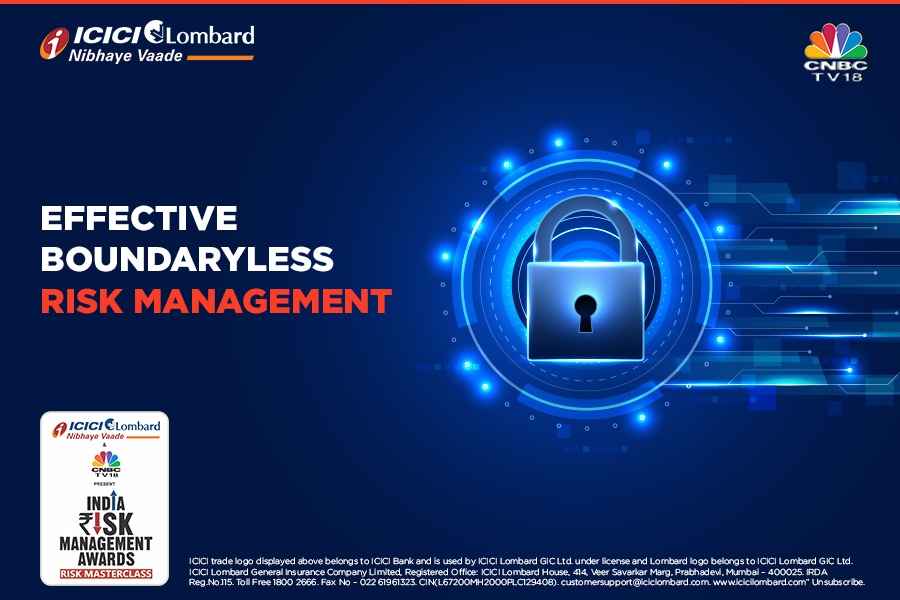Managing new risks without forgetting the old
Covid-19 has been a huge learning curve for Indian companies, who are now introducing global best practices, experimenting with the latest cyber technology and tightening up their supply link chains


Cyber-attacks, disruption of global supply chains and geo-politics are three major risks to emerge in the aftermath of Covid-19, believe leading corporate heads, who came together on the Master class organised by ICICI Lombard General Insurance and CNBC TV 18.
The high profile attendees included FICCI President and Joint MD, Apollo Hospitals, Dr Sangita Reddy Sahil Kangotra, VP-Corporate Solution Group, ICICI Lombard Vijayanush Narsimhan, CFO, Cisco India, SAARC Prag Wadhawan, ED, PwC India Alok Agarwal, ED, ICICI Lombard, GIC Venkataraman GS, CFO, Subex Ballav Mundra, CFO, Hexagon Capability Center India Unique Kumar, Group Chief Information Security Officer, CK Birla Group and Amit Harlalka, Deputy CFO, ArcellorMittal Nippon Steel India.
Pandemic opens up opportunities
According to Reddy, the pandemic has opened a plethora of opportunities, which will lead to a transformed health care delivery system. ``Today we have more than 14,500 Covid facilities in the country with upwards of 70,000 Covid ICU beds in the private sector,” she said.
ICICI Lombard’s Kangotra, said they believed in partnering their clients in finding cost effective ways of mitigating risks. ``We have introduced marine transit, IoT for fire hydrants, wellness solutions in health space and virtual risk assessment using drones, leading to reduced claims,” he pointed out.
India as alternate supply chain centre
In the estimation of ArcellorMittal Nippon Steel India’s Haralka, India’s China-Plus- One strategy makes it a template for an alternate supply chain centre. ``China has been exporting steel throughout the world. Yet, in 2020 China is importing steel,” he said, adding that the trade wars and the lockdown had turned the market in that country upside down.
Highlighting the cyber threat, Cisco India’s Narsimhan believed that glocal companies need to be nimbler. ``Work from home is the new norm, not the exception,” he explained.
Companies with risk strategy doing well
Prag Wadhawan, ED, PwC India, said that despite the huge disruptions caused by the pandemic, there were companies that were doing well because they have a well laid down process of managing risks.
Venkataraman of Subex believed that the rolling out of 5G and the introduction of new technology had increased the risk threat manifold. The earlier 3G, 4G rollouts concerned themselves with the consumer and retail parts of business, while 5G is more enterprise-driven, he stated.
Analytics and ongoing audit posture
Hexagon Capability Center India’s Mundra said that analytics helped with continuous risk assessment, enabling organisations to have an ongoing audit posture.
What the pandemic has done is increase the digital risk, with companies working online, pointed out CK Birla Group’s Unique Kumar, who said that there is 600% increase in malicious mail during the Covid-19 breakout, suggesting that cyber criminals were looking for classified trade information.
Preventive risk management
ICICI Lombard’s Alok Agarwal suggested that the time has come for companies to work on preventive risk management as there was little point in reacting once an accident had taken place.
The session was moderated by CNBC-TV18’s Mridu Bhandari.
The pages slugged ‘Brand Connect’ are equivalent to advertisements and are not written and produced by Forbes India journalists.
First Published: Dec 21, 2020, 21:03
Subscribe Now